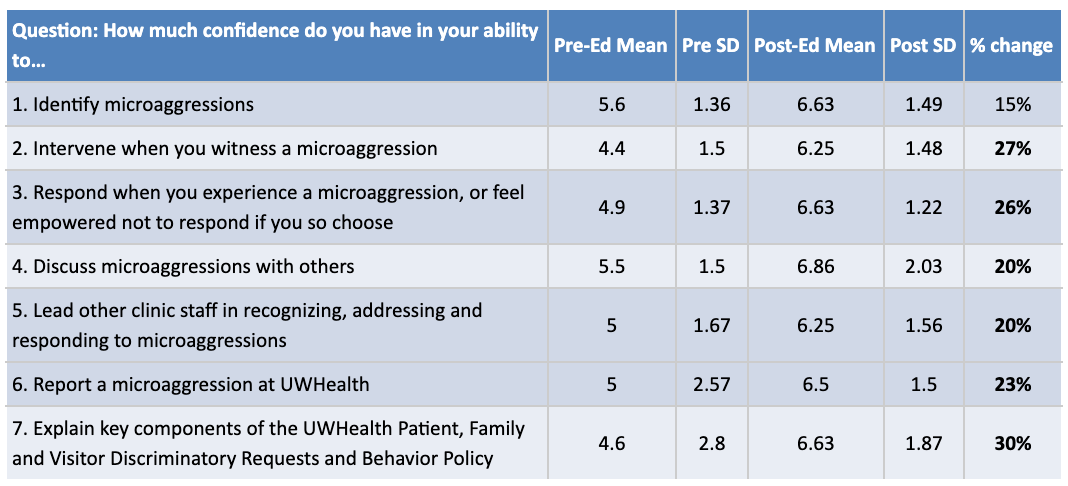Quality Improvement/Patient Safety: Primary & Subspecialty Outpatient Quality Improvement
QI 6: Primary & Subspecialty Outpatient QI Group 1
261 - A Quality Improvement Project to Combat Microaggressions in an Academic Outpatient Clinic
Publication Number: 261.452

Emily S. Lai, MD (she/her/hers)
Resident Physician
University of Wisconsin School of Medicine and Public Health
Middleton, Wisconsin, United States
Presenting Author(s)
Background: Microaggressions are the “everyday slights, indignities, put downs and insults that people of color, women, LGBT populations or those who are marginalized experience in their day-to-day interactions" (Derald Wing Sue, PhD). They promote bias, discrimination and disrespect.
Objective: To enhance pediatricians’ confidence in identifying, responding to, and discussing microaggressions (“addressing microaggressions”) by 20% using a quality improvement (QI) framework.
Design/Methods:
This QI initiative was conducted in an eleven-provider group at an academic ambulatory primary care pediatric clinic. Root cause analysis indicated that providers did not address workplace microaggressions for a variety of reasons including unfamiliarity with organizational policy; and lack of confidence in recognizing, intervening, and reporting. A pre-intervention survey assessed perceived confidence addressing microaggressions on a zero to nine rating scale. An educational intervention delivered over 6 months targeted expanding provider knowledge on relevant institutional policies; methods of addressing microaggressions; and practice intervening. Educational modalities included training videos, self-guided readings, interactive role-play, and scenario-based discussions. Participants repeated the survey at five additional timepoints, following each discrete curricular component and after the full intervention.
Results: At the project’s conclusion, provider confidence increased in all measured categories (Graph 1). The 20% improvement goal was reached in 6 of 7 identified subcategories (Table 1), including confidence in intervention (27%), response (26%), discussion (20%), leadership (20%), reporting (23%), and explaining policy (30%).
Conclusion(s): Pediatrician confidence in addressing microaggressions in the ambulatory clinic setting can increase after a 6 month educational interactive curriculum. We also found that the number of educational timepoints introduced was correlated with improved confidence. Next steps include expanding this educational program to other ambulatory clinics, and enhancing programming to strengthen confidence in identifying microaggressions, as this did not achieve 20% change.
.png)
